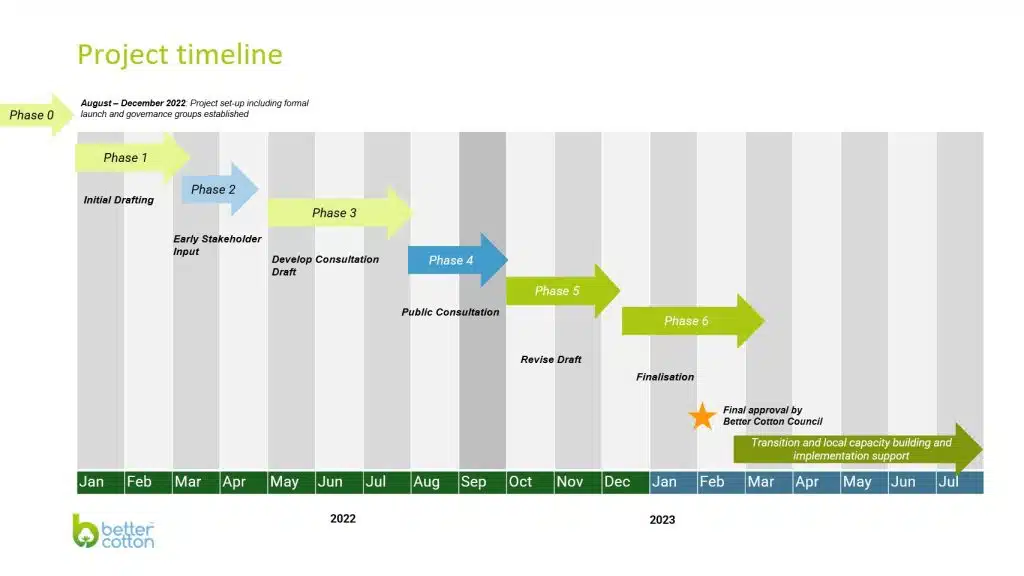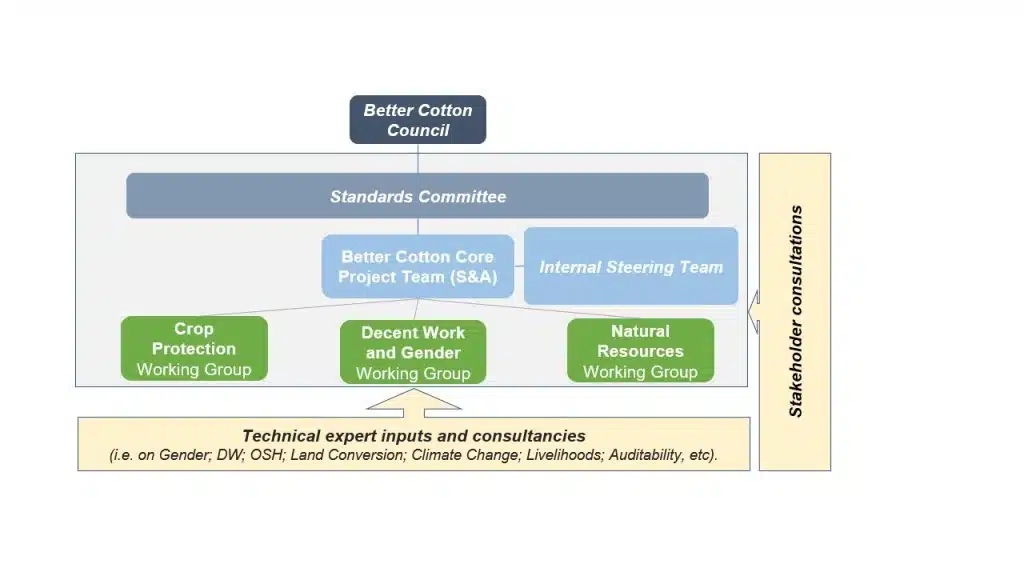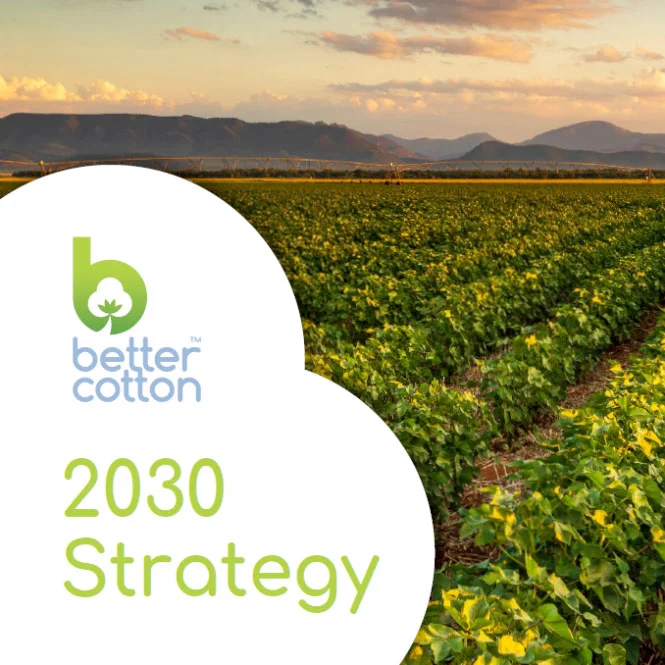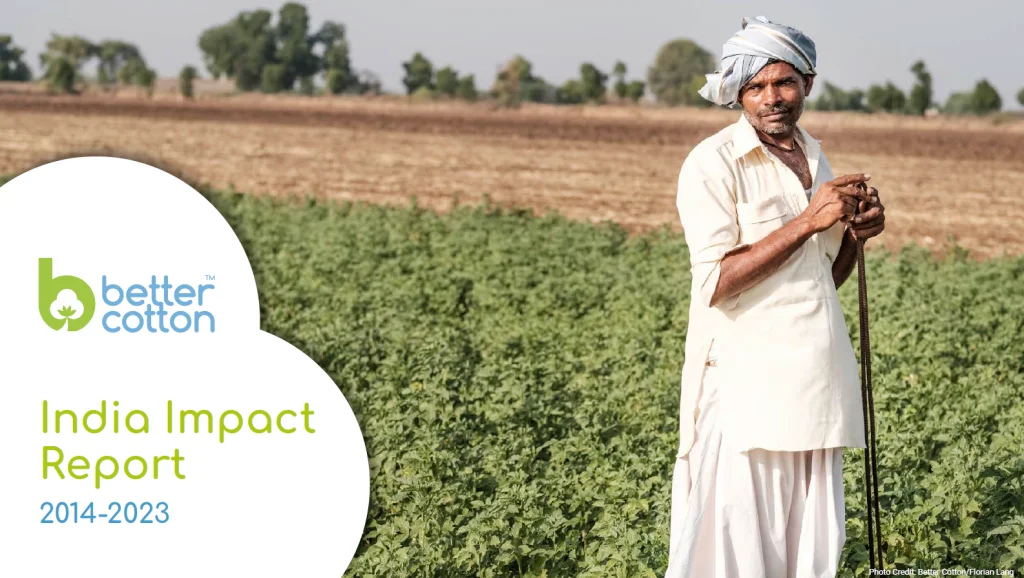Timeline
The revision of the Better Cotton Principles and Criteria ran for roughly 18 months and consisted of an iterative process of drafting and various stakeholder consultations. It followed ISEAL’s Standard-Setting Code of Good Practice v.6.0, which sets out best practice guidelines to develop or revise sustainability standards.

Governance of the Revision Process

The project benefitted from several standing and external committees. Three technical groups worked closely with us to revise the current indicators. These groups of subject experts, appointed by the Better Cotton Standards Committee, helped draft the revised indicators and guidance, review stakeholder feedback, and adjust the draft content based on this feedback.
The project was overseen by a multi-stakeholder Standards Committee, comprising dedicated technical experts and representatives from Better Cotton’s Council and membership base. The responsibility for the final approval of the revised P&C was entrusted to the Better Cotton Council.
Meet the working group members below.
Outcomes of the Public Consultation
Between 28 July and 30 September 2022, Better Cotton ran a Public Stakeholder Consultation on the draft text of version 3.0 of the Principles and Criteria. The Consultation included a variety of online and offline activities at a local and global level.
You may find the Consultation draft of the P&C and a synopsis of the comments from the Public Stakeholder Consultation with the ways these have been addressed in the revised Standard in the ‘Key Documents’ section of our Principles and Criteria page. An anonymised version of all written comments from the Public Stakeholder Consultation can be provided upon request. For more information, please contact [email protected].
Complete records of the standard revision will be kept on file for at least five years and will be made available to stakeholders upon request.


